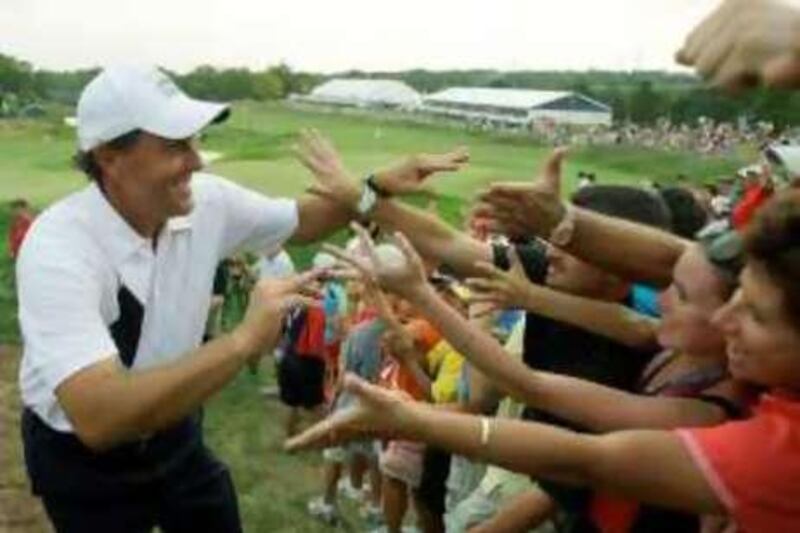Opinion was divided during the build-up to the 37th Ryder Cup regarding the "Tiger Factor". Would the injury-enforced absence of the world No 1 Tiger Woods from the Valhalla showdown work to the advantage of the home team or prove to be a decisive weakness?
The evidence after an enthralling first day, which went emphatically in favour of Paul Azinger's men is that the States look more united this time than they have in recent times on their way to defeats in five of the previous six matches. Nobody stepped into the void of Woods better than Phil Mickelson, the world No 2 who assumed the role of Azinger's unofficial team leader when it became known that Tiger's damaged knee would not heal in time.
Out of sorts on previous unproductive appearances against Europe, Mickelson was a man inspired as the biennial event roared into life on Friday and he performed in the same manner as Colin Montgomerie has in setting an impressive standard over a decade for his European colleagues to follow. Mickelson's status as his nation's top player behind Woods gave him the right to pick his own partner and he clearly chose well in Anthony Kim, the most exciting of the six American rookies. Azinger, expecting Europe to send their finest, Padraig Harrington, as the lead-off, sent them out first in both foursomes and fourballs - a strategy which was amply rewarded.
Each time Harrington and his respective partners Robert Karlsson and Graeme McDowell, started strongly but every time Mickelson and his young colleague fought back, firstly to secure a battling half and then to squeeze home by one hole in a fluctuating fourball which represented a significant flagship victory for the Americans. Mickelson's heroics at the top of the order was the catalyst for the US to roar into a precious 5½-2½ overnight lead - the first time they had held an advantage at that stage since 1995 - but the left-handed genius was cautious about celebrating too much too soon.
"We know tomorrow's going to be a tough day and we know that the Europeans are going to come out fighting - they always do," said a highly contented Mickelson. "They're going to play some of their best golf in the morning and in all the matches so far they've been getting off to great starts. "So we're just going to have to keep doing what we're doing, fight hard, keep the matches close and see if we can pull it out of the bag in the end."
Azinger, a well-satisfied captain, was also anxious to guard against complacency. "Well, clearly we haven't led at this stage in a long time, so we're really happy about that," he said. "We also know how good Europe are, so we're just going to try to get a nice rest and go out and play well tomorrow. "We're in a happy spot. I mean, it's better than it being the other way, that's for sure. But like I said, we're not even to the halfway point yet. It's not a sprint; it's a marathon."
Faldo put on a brave face in what for recent European captains is an unfamiliar position. "We had a very tough start," he said. "But my guys gave 100 per cent. "It is not just the games which turn, but also the emotions. You have to regroup and go again, but everybody is up for it." @Email:wjohnson@thenational.ae





